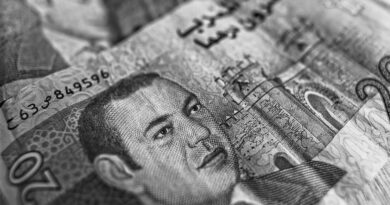Maximize Your Tax Savings: Essential Financial Tips for Minimizing Taxes
Maximizing Your Tax Savings: Essential Financial Tips for Minimizing Taxes
As a financial expert, one of the key areas where individuals and businesses can improve their financial wellness is by maximizing their tax savings. By understanding the tax laws and knowing how to take advantage of available deductions and credits, you can reduce your tax liability and keep more of your hard-earned money in your pocket. In this article, we will discuss essential financial tips for minimizing taxes and maximizing your tax savings.
1. Know Your Tax Bracket and Plan Accordingly
The first step in maximizing your tax savings is to understand your tax bracket. Knowing your tax bracket will help you determine what tax strategies will be most effective for your situation. For example, if you are in a higher tax bracket, you may want to consider strategies such as contributing to a retirement account or taking advantage of tax-deferred investment options. On the other hand, if you are in a lower tax bracket, you may be able to benefit from tax credits for lower-income individuals.
2. Take Advantage of Tax-Deductible Retirement Contributions
One of the most effective ways to minimize taxes and maximize your tax savings is to take advantage of tax-deductible retirement contributions. Contributing to a traditional IRA or 401(k) can lower your taxable income and reduce your tax liability. Additionally, the money you contribute to these accounts can grow tax-deferred, giving you the opportunity to further increase your savings over time.
3. Utilize Tax Credits
Another way to reduce your tax bill is to take advantage of available tax credits. Tax credits are valuable because they directly reduce the amount of tax you owe, while deductions only reduce your taxable income. Some common tax credits include the child tax credit, the earned income tax credit, and the American opportunity tax credit for education expenses. By knowing which tax credits you qualify for and claiming them on your tax return, you can significantly lower your tax liability.
4. Keep Detailed Records
To maximize your tax savings, it is essential to keep detailed records of your income, expenses, and deductions throughout the year. By maintaining accurate records, you can ensure that you are taking advantage of all available tax deductions and credits. Additionally, having organized records will make it easier to prepare your tax return and avoid any potential errors that could lead to audits or penalties.
5. Consider Itemizing Your Deductions
While taking the standard deduction may be the simplest option for many taxpayers, itemizing your deductions can often result in greater tax savings. Common deductions that can be itemized include mortgage interest, property taxes, charitable contributions, and medical expenses that exceed a certain percentage of your income. By carefully tracking and documenting your expenses, you may find that itemizing your deductions can lead to a lower tax bill.
6. Explore Tax-Efficient Investing Strategies
When it comes to investing, choosing tax-efficient strategies can help you maximize your after-tax returns. For example, investing in tax-advantaged accounts such as Roth IRAs or municipal bonds can allow you to grow your money tax-free or tax-deferred. Additionally, consider holding investments for the long term to take advantage of lower capital gains tax rates. By working with a financial advisor to develop a tax-efficient investment strategy, you can minimize the taxes you owe on your investment gains.
7. Stay Informed About Changes in Tax Laws
Tax laws are constantly evolving, and staying informed about changes in the tax code can help you take advantage of new opportunities to save on taxes. For example, recent tax reforms have introduced changes such as increased standard deductions, lower tax rates, and modifications to deductions for state and local taxes. By staying informed about these changes and understanding how they impact your tax situation, you can adjust your tax strategies to maximize your savings.
In conclusion, maximizing your tax savings requires careful planning, attention to detail, and a proactive approach to managing your finances. By following these essential financial tips for minimizing taxes, you can reduce your tax liability and keep more of your money in your pocket. Remember to consult with a tax professional or financial advisor to ensure that you are taking full advantage of all available tax-saving opportunities. With the right strategies in place, you can improve your financial wellness and achieve greater success in reaching your financial goals.





